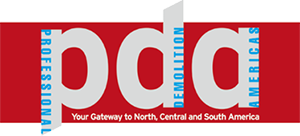Do Ask...and Please Do Tell
Published: 12/10, 2021
“How are you doing?”
Too often, we ask this question of without really expecting much of answer. Among friends and colleagues, the response might be along the lines of “OK” or “same old same old.” Absent big news in their lives, we may not even care for a detailed response. Maybe we should.
Mental health has been in the spotlight over the past several months, in part a result of the pandemic’s extraordinarily disruptive effects on lives and livelihoods. We’ve also seen several high-profile athletes step back from competition, citing the pressures of their intense, micro-scrutinized personal and professional worlds.
This discussion is long overdue. For too long, mental health issues have been something of a stigma, sometimes mistakenly associated with personal shortcomings. Whether these mental and emotional challenges stem from a temporary accumulation of stressors, or are rooted in more complex causes, our instinct is to ignore them and just power through. We have to; there are bills to pay, a job to do, a family to support.
Such attitudes are potentially dangerous, as they can perpetuate a cycle of that becomes harder and harder to break. (I saw that firsthand with my father, a consummate “type A” personality whose obsession with getting things done contributed to ill health and an early demise.) A so-called “mental health” day or after-work beer just won’t do, because the worries and challenges are still there the next morning. Coping agents such as alcohol and drugs often create new problems that increasingly outweigh whatever short-term relief they provide, even as the grip of addiction tightens.
While no one is immune to mental health challenges, some fields are particularly susceptible to them. A 2020 report from the Centers for Disease Control found that construction and extraction industries have an alarmingly high suicide rate—nearly 50 for every 100,000 men in those jobs. The rate for women in these occupations may seem lower—25.5 per 100,000—but it far outpaces any other type of job.
That makes the issue of mental health and wellness as much as safety issue as hard hats and ear plugs. Not being fully engaged in one’s job can put co-workers at risk, compromise the quality of work, waste materials and accelerate equipment wear, and disrupt schedules that as most of us know, have less and less room for error. Then, of course, there’s the employee’s wellness, a condition that can not and should not be dismissed by assuming he or she will “get over it.”
To be sure, mental health remains a difficult topic to pursue when one denies anything is wrong. But actions and behaviors typically speak louder than words. And if something seems amiss, we owe it to the individual—and ourselves—to do something to help. Fortunately, a wealth of guidance for addressing mental health in the workplace is available from established industry organizations such as AGC’s Culture of Care and ABC’s Total Human Health, as well as groups such as the Construction Industry Alliance for Suicide Prevention (CIASP) and Construction Working Minds.
Even something simple as making the effort to ask “how are you doing” can make a difference in helping someone deal with a mental health issue — as long as we also make the effort to truly listen to the answer.
Jim Parsons, Senior Editor
